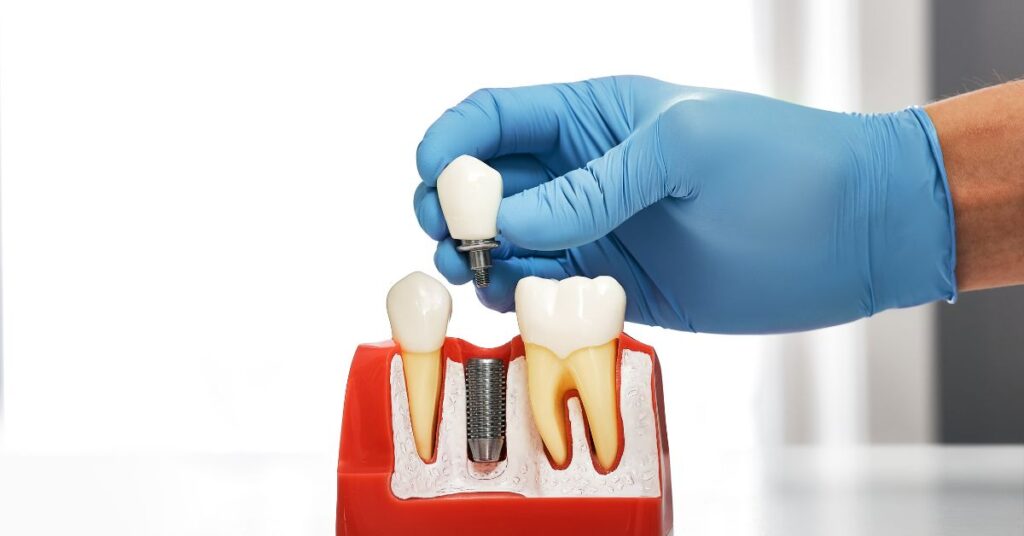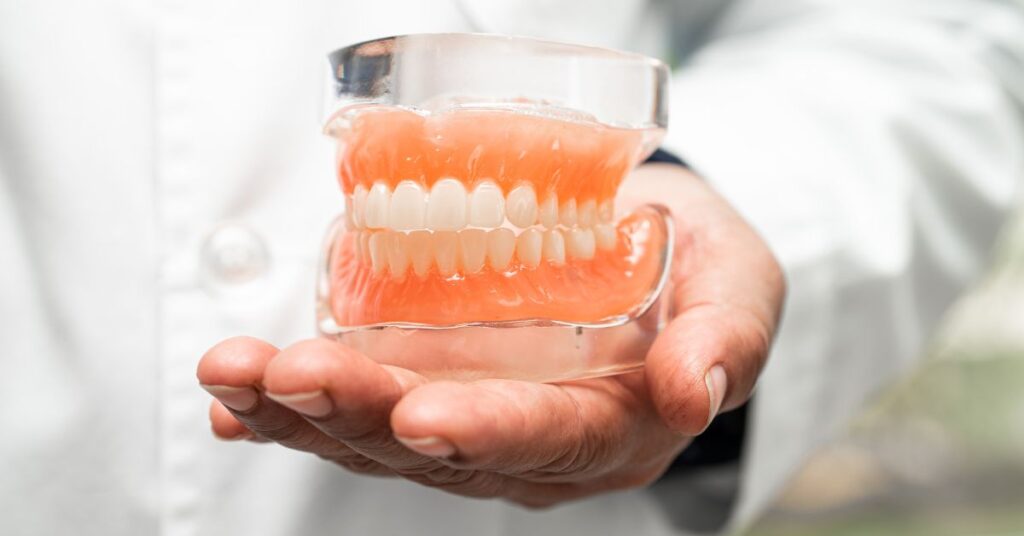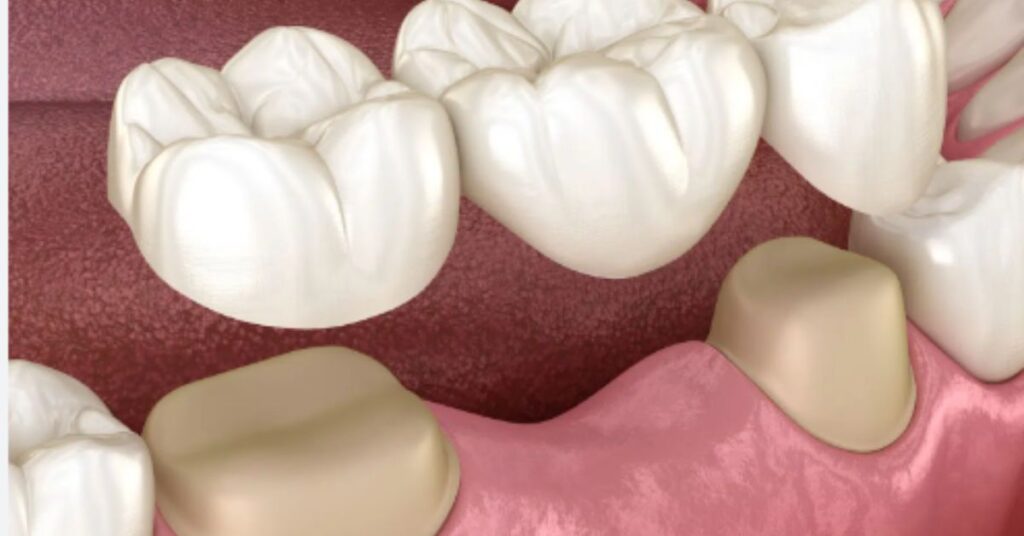
Introduction
Losing a tooth can significantly impact your self-esteem and oral health. But here’s the good news: modern dentistry offers several effective solutions for teeth replacement. In this comprehensive guide, we’ll explore the various teeth replacement options available, helping you make an informed decision about restoring your smile.
The Impact of Missing Teeth
Missing teeth are more common than you might think. Millions of Americans are dealing with tooth loss right now. This issue doesn’t just affect your appearance; it can have far-reaching consequences on your daily life, from how you eat to how you speak and even your overall confidence.
Replacing missing teeth isn’t just about aesthetics. It’s crucial for maintaining proper oral function, preventing further dental issues, and preserving your facial structure. Let’s dive into the most popular tooth replacement options and see how they stack up.
Dental Implants: The Gold Standard in Teeth Replacement

When it comes to replacing missing teeth, dental implants are often considered the crème de la crème of restorative dentistry. But what exactly are they?
Dental implants are artificial tooth roots, typically made of titanium, that are surgically placed into your jawbone. Once in place, they fuse with your natural bone, creating a sturdy foundation for a replacement tooth or bridge.
The dental implant procedure is a multi-step process that usually takes several months. It starts with the implant placement surgery, followed by a healing period, and finally, the attachment of the artificial tooth.
Benefits of Dental Implants
Dental implants offer a range of advantages that make them a popular choice:
- They look and feel like natural teeth, blending seamlessly with your smile.
- Implants help preserve jaw bone health by stimulating bone growth.
- With proper care, dental implants can last a lifetime, making them a durable solution.
- They restore full oral function, allowing you to eat, speak, and smile with confidence.
- Implants can significantly enhance your quality of life by eliminating the inconveniences associated with removable dentures.
While dental implants are an excellent option for many, they’re not suitable for everyone. Factors like overall health, bone density, and lifestyle habits play a role in determining if you’re a good candidate for this procedure.
Dentures: A Versatile and Affordable Solution

For those seeking a more budget-friendly option, dentures remain a popular choice. These removable appliances can replace multiple teeth or even an entire arch.
Types of Dentures
There are two main types of dentures:
- Partial dentures: These are used when you still have some natural teeth remaining. They clip onto your existing teeth to fill in the gaps.
- Complete dentures: Also known as full dentures, these replace all the teeth in either the upper or lower jaw (or both).
The process of creating dentures involves taking impressions of your mouth, crafting the dentures in a lab, and then fitting and adjusting them for optimal comfort and function.
Advantages of Dentures
Dentures offer several benefits that make them an attractive option:
- They’re generally more affordable than other tooth replacement options.
- The procedure is non-invasive, requiring no surgery.
- You can get your new teeth relatively quickly compared to implants.
- Dentures can be easily adjusted if your mouth changes over time.
Proper care and maintenance are crucial for keeping your dentures in good condition. This includes regular cleaning, proper storage when not in use, and periodic check-ups with your dentist for adjustments.
Dental Bridges: Bridging the Gap in Your Smile

Dental bridges, as the name suggests, literally bridge the gap created by one or more missing teeth. They’re a fixed solution, meaning they’re permanently attached to your existing teeth or implants.
How Dental Bridges Work
A typical dental bridge consists of one or more artificial teeth held in place by dental crowns on either side. These crowns are cemented onto your natural teeth or implants, creating a stable and durable tooth replacement.
Types of Dental Bridges
There are several types of dental bridges, including:
- Traditional bridges are the most common type, using crowns on adjacent teeth to support the pontic.
- Cantilever bridges: Used when there’s only one adjacent tooth available for support.
- Maryland bridges: These use a metal or porcelain framework bonded to the backs of adjacent teeth, requiring less alteration of natural teeth.
Benefits of Dental Bridges
Dental bridges offer several advantages:
- They restore your ability to chew and speak properly.
- Bridges improve the appearance of your smile by filling in gaps.
- They prevent remaining teeth from shifting out of position.
- With proper care, dental bridges can last 10-15 years or even longer.
Maintaining a dental bridge involves good oral hygiene practices and regular dental check-ups. Special flossing techniques or tools may be necessary to clean under the pontic.
Choosing the Right Teeth Replacement Option for You
Selecting the best tooth replacement option depends on various factors:
- The number and location of missing teeth
- The health of your remaining teeth and jawbone
- Your overall oral health
- Your budget and insurance coverage
- Your personal preferences and lifestyle
It’s crucial to consult with a dental professional who can assess your case and recommend the most suitable option. They can provide detailed information about each procedure, including potential risks and benefits.
The Future of Teeth Replacement Technology
The field of restorative dentistry is continually evolving. Exciting advancements on the horizon include:
- Improved dental implant materials and techniques for faster healing and integration
- 3D-printed dentures and bridges for more precise fit and aesthetics
- Stem cell research aimed at regenerating natural teeth
These innovations promise to make tooth replacement procedures more efficient, comfortable, and long-lasting in the future.
Conclusion:
Losing a tooth doesn’t have to mean losing your smile. With the variety of teeth replacement options available today, you can find a solution that fits your needs, budget, and lifestyle. Whether you choose dental implants, dentures, or bridges, the key is to take action. Don’t let missing teeth impact your quality of life any longer.
Remember, your oral health is an integral part of your overall well-being. By addressing tooth loss promptly and choosing the right replacement option, you’re investing in your health, confidence, and future happiness. Visit Sri Sanjeevini Dental today to start your journey towards a complete, healthy smile.
